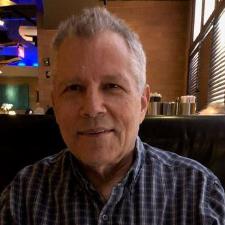There are a few rules that would be helpful to guide you with the verbs in the quoted portion. For example, in #4, the verb "ate" is in the simple past. It would become the past perfect, "had eaten." In #5, the verb "have run" is in the present perfect. If becomes the past perfect, "had run." In #6, the verb "am" is in the simple present so it changes to the simple past, "was." Although modal verbs don't have tense in the strictest since, in reported speech, the modal "can" becomes the modal "could," and the modal "will" becomes the model "would." Also, the modal "may" becomes "might."
Also, the subject of the quoted portion generally changes. In #4, 5, 6, and 7, "I" becomes "he," etc. I don't know that this is a rule, but just a matter of common sense. #8 is a little different since "you" is the subject. If "you" is the person that the question is directed to, then in the reported speech, "you" would become "I." If a third person is in the conversation and is repeating to the person who is "you," then it is feasible that "you" would stay the same. However, if this Is an exercise, that is probably making it too complicated, so I would go with changing "you" to "I." Also, with a "do" question, we would need to add "if". I will do #4 and #8 for you so that you can see them.
4. He said, "I ate too much pizza last night".
He said that he had eaten too much pizza last night. (Also, note that the word "that" can be optional.) He said he had eaten too much pizza last night.
5. He said, "I've just run five miles".
6. He said, "I'm really tired now".
7. He said, "I've had loads of schoolwork to do".
8. She asked, "Do you understand reported speech now?"
She asked if I understood reported speech now. Also acceptable is: She asked me if I understood reported speech now. (The word "if" is not optional.)






